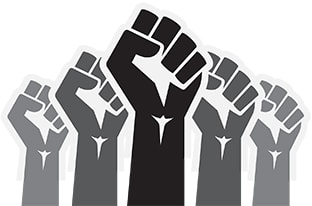A Global View on Workers Rights with Special Emphasis on the UAE Laws
“Workers' rights should be a central focus of development” – Joseph Stiglitz
 It is often said that workers rights are human rights. The statement expresses the importance of the protection of workers or labours in the society. Workers are members of the society without which there wouldn't be any progress in the community. They are the backbone of a society, which helps in the advancement of a nation. Therefore it is pertinent that the Governments of all the countries must take adequate steps for the protection of workers.
It is often said that workers rights are human rights. The statement expresses the importance of the protection of workers or labours in the society. Workers are members of the society without which there wouldn't be any progress in the community. They are the backbone of a society, which helps in the advancement of a nation. Therefore it is pertinent that the Governments of all the countries must take adequate steps for the protection of workers.
In this article, we will analyze the concept of workers' rights with particular emphasis on UAE laws.
Before we deal with the concept of workers or labour rights, it is necessary to understand the meaning of the term ‘Labour.'
The renowned Economist Dr. Alfred Marshall in his famous Principles of Economics has quoted the definition of labour as provided by Jevons, and it defines the term labour as the following:
“Labour is any exertion of mind or body undergone partly or wholly with a view to some good other than the pleasure derived directly from the work."
In simple terms, the ‘Labour’ refers to the practical effort put in by an individual whether physical or mental. Therefore it is the factor affecting the production of a nation put in by an individual.
Workers/Labour Rights
Workers or Labour rights are a set of rules and regulations which govern the relationship between the workers and their employers under concerned labour law or employment law. They deal with the grant of benefits to the workers, their safety, wages, protection and measures adopted for safeguarding their interest.
The right of the workers varies from jurisdiction to jurisdiction. However, the International Labour Organization (ILO), which is a part of the United Nations, was established in 1919 for the protection of workers. Workers rights and legislation are necessary for the better functioning of society since it has a significant influence on the growth of a nation.
History of Workers Rights
Workers have always been suppressed throughout history. The working class was not given any protection in the early days. Use of physical work was looked upon as inferior and hence the fundamental human rights were denied to the workforce during the early period. In the middle ages, the workforce of England revolted against the government, for better wages and working conditions and that was one of the first instances of rebellion by the workforce.
The concept of workers’ rights was relatively a new concept under human rights until the age of industrialization. The renowned economist and philosopher Karl Marx was one of the most prominent thinkers to advocate the concept of workers’ rights. The social movements also paved the way for the rise of workers' rights around the globe.
Need for Workers Rights
Protection of the workers is necessary to safeguard their interest and to comply with provisions of human rights. The employers have an unfair advantage of determining the mode of work of the labours as long as it does not violate any laws. The employers may use their position to impose actions which may be unsafe and unfair for the workers. Therefore, regulation is necessary to ensure that the workers work under safe conditions and are not subject to any form of ill-treatment.
International Position of Workers Rights
As discussed earlier, each state has its own set of rules and regulations for the protection of workers or labours. However, as a part of the League of Nations, the International Labour Organization (ILO) was established in 1919 for the protection of workers' rights. Subsequently, ILO was brought within the scope of the United Nations. Eight conventions have been identified as fundamental for the protection of workers under the International Labour Organization.
The ILO Declaration on ‘Fundamental Principles and Rights at Work’ was adopted in June 1998, and it covered the following main areas:
- Right to collective bargaining and freedom of association
- To end all forms of forced or compulsory labour
- Abolition of child labour
- Elimination of discrimination in the occupation
 The Declaration on Fundamental Principles and Rights considers the conventions as core labour standards and they are given utmost importance. The core labour standards are universally applicable to all members of the International Labour Organization whether they have been ratified or not.
The Declaration on Fundamental Principles and Rights considers the conventions as core labour standards and they are given utmost importance. The core labour standards are universally applicable to all members of the International Labour Organization whether they have been ratified or not.
The following are the Core Labour Standards as identified by the ILO:
- Freedom of Association and Protection of the Right to Organise Convention, 1948 (Number 87)
As per this convention, all the workers have the right to form associations and organize conventions for support and advancement of occupation.
- Right to Organise and Collective Bargaining Convention, 1949 (Number 98)
The convention provides the employers to bargain collectively, as opposed to individually.
- Forced Labour Convention, 1930 (Number 29)
This convention prohibits all forms of forced labour. Forced labour is stated in the convention as the following:
“Forced labour occurs where work or service is exacted by the State or by individuals who have the will and power to threaten workers with severe deprivations, such as withholding food or land or wages, physical violence or sexual abuse, restricting peoples’ movements or locking them up.”
- Abolition of Forced Labour Convention, 1957 (Number 105)
This convention also provides for the elimination of forms of labour convention.
- Minimum Age Convention, 1973 (Number 138)
The convention provides for the abolition of child labour by increasing the minimum age for admission to work.
- Worst Forms of Child Labour Convention, 1999 (Number 182)
The convention was adopted for the prohibition and elimination of the worst forms of child labour and for assisting the Minimum Age Convention, 1973.
- Equal Remuneration Convention, 1951 (Number 100)
The convention was adopted for implementing the principle of equal remuneration, i.e., equal pay for equal work for both men and women.
- Discrimination (Employment and Occupation) Convention, 1958 (Number 111)
The convention was adopted to prevent discrimination in the field of occupation and employment.
Workers Rights in the UAE
The UAE, being a member of the International Labour Organization and other multilateral organizations, protects the rights of workers in the region, and considers the protection of workers as a moral, cultural and economic necessity.
The report, “The Protection of the Rights of the Workers in the United Arab Emirates” published by the UAE Ministry of Labour exhibits that, UAE recognizes the importance given to the right of workers. The region aims to expand protection to the workers thereby granting respect and dignity to the workers.
Since 1982, the UAE has ratified nine International conventions under the ILO related to workers rights, and they are:
- Forced Labour Convention, 1930
- Abolition of Forced Labour Convention, 1957
- Minimum Age Convention, 1973
- Worst Forms of Child Labour Convention, 1999
- Equal Remuneration Convention, 1951
- Discrimination (Employment and Occupation) Convention, 1958
- Labour Inspection Convention, 1947
- Hours of Work (Industry) Convention, 1919
- Night Work (Women) Convention, 1948
Apart from the ratification of the conventions mentioned above, the UAE Labour law provides for the safety and protection of the workers in the region.
The UAE Federal Law Number 10 of 2017 and Federal Law by Decree Number 11 of 2008 deal with the protection of workers in the UAE.
 The Council of Ministers Resolution Number 15 of 2013 on Human Resources Regulation for the Independent Federal Entities contains provisions for complaints against an employer. Article (127) of the Resolution states the following:
The Council of Ministers Resolution Number 15 of 2013 on Human Resources Regulation for the Independent Federal Entities contains provisions for complaints against an employer. Article (127) of the Resolution states the following:
“The employee may submit to the complaints committee a written complaint from the administrative penalties decided by the violations committee to be imposed on him within period doesn’t exceed two weeks as of the date of notifying the employee with the resolution of the penalty.”
The Article (130) of the law, provides for objection to the committee’s resolution
“The employee may object to the resolution of the complaints committee issued on other than both penalties of written notice and warning by submitting a written objection signed by him to the complaints committee formed at the authority within period doesn’t exceed three weeks as of notifying him of the penalty resolution; otherwise, the resolution of the complaints committee shall be decisive.”
As per the Domestic labor law (Federal Law Number 10 of 2017), the following are some of the benefits to which a worker is entitled-
- Payment of Wages as provided in the contract within ten days from the date of due.
- One day of paid rest per week
- 12 hours rest, and 8 hours consecutive rest at least.
- Paid vacation of 30 days per year
- Medical Insurance
- A medical leave of 30 days
- Payment of worker’s airfare.
- Appropriate accommodation for the worker
- Providing worker’s needs including meal and suitable attire
- Secure personal identification documents
Conclusion
Workers protection is necessary for the development of a country, and the UAE has taken adequate measures for the protection of workers. Without laws on the protection of the workforce, the state would be under a crisis concerning occupation. Legislation on workers protection not only benefits the workers but also displays that the country's growth in law and economy.
 English
English
 عربي
عربي Русский
Русский 官话
官话 português
português
 Türk
Türk 

















